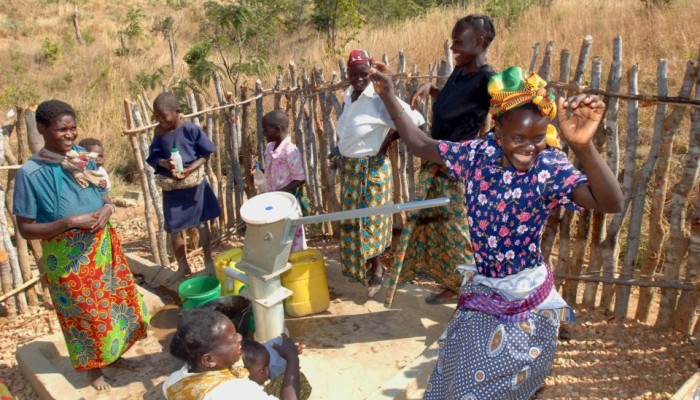
Clean Water in Kenya (Credit: Hudson Shiraku)
Sue Desmond-Hellman (CEO of Bill & Melinda Gates Foundation) and Nick Hurd (Minister for International Development, DFID – UK Department for International Development) have written a joint article on putting science at the heart of development.
“If we are going to end extreme poverty, it’s going to take more than additional funds or deeper commitment, however. We are going to have to put science at the heart of international development…… We believe that science should go not only to improving the lives of those who can afford it, but also to those with the greatest need, regardless of where they are.”
We would add the following short reflections to this article:
(1) Putting science at the heart of development means greater recognition of the role that ALL the sciences can play, ensuring that all the sciences are playing their role in ending poverty. For many of those reading this post, that means working hard to put geoscience at the heart of development (including natural resource management, agriculture, water and sanitation, disaster risk reduction, climate change, health…). Geology has a significant role to play in many of the Sustainable Development Goals.
(2) Putting science at the heart of development means greater integration of scientists within the development sector. We need to see more effective, meaningful partnerships between scientific organisations and those delivering development support. Having scientists embedded within development organisations (including international NGOs) helps increase understanding of the benefits and limitations of science, together with supplying specialist technical knowledge to inform policy, programmes, and campaigning.
(3) Putting science at the heart of development means strong technical capacity strengthening. It’s great to see the article emphasise the importance of developing scientific knowledge in Africa and, we would add, other low income countries. Scientific and development organisations should be actively engaged in strengthening the technical capacity of institutions such as universities, research institutes and public-sector geological surveys. This requires meaningful consultation, with all relevant groups represented and working together as equals. This demands a wide range of supporting skills, including cultural understanding, effective communication, diplomacy and knowledge exchange (read more).
